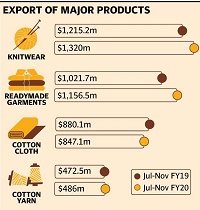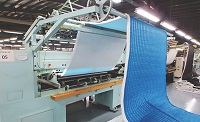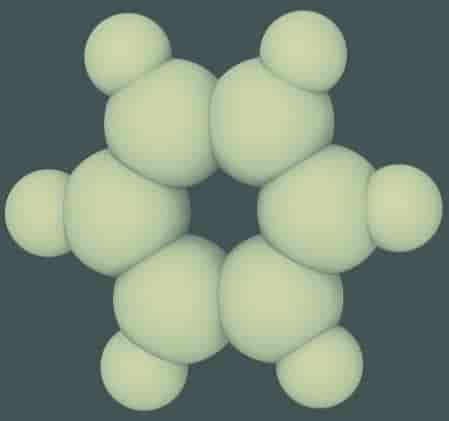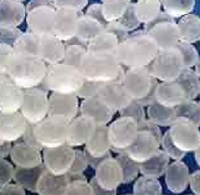Petrochemical Polyester Cellulose Fibres 03-01-2020 - Arhive
Petrochemical Polyester Cellulose Fibres
-Crude Oil Prices Trend

-At 79 years, you will have consumed 20kgs of plastics — study
A study has found out that we are breathing micro-plastic, eating it and drinking plastic-filled water daily.
According to the Guardian, plastics do not decompose, but they break down into smaller pieces, spread to the rivers and ocean, get eaten by fish and other marine animals and become part of the food chain.
A study done by the WWF (World Wide Fund for Nature) International noted that you could be swallowing plastic the size of a credit card in a week, through water and other sources such as shellfish.

-Is The Shale Boom Running On Fumes?
Shale drilling does not produce as much oil and gas as the industry promised, raising questions about the productivity, profitability and, ultimately, the longevity of the fracking boom.
The Wall Street Journal published a damning investigation into the productivity of thousands of shale wells, finding that as time has passed, oil and gas production from shale wells has proved to be more disappointing than previously thought. The report adds more evidence to the conclusion that the WSJ came to nearly a year ago, which raised serious questions about problems endemic to shale drilling.

-Textile sector picks up but challenges remain
The textile industry of Pakistan had high hopes for the announcement of a handful of beneficial and favourable policies by the government of Prime Minister Imran Khan, which has now been in power for nearly one and a half year.
Earlier in the final years of previous Pakistan Muslim League-Nawaz (PML-N) government, Imran Khan – then an opposition leader – had expressed solidarity with the textile sector, apparently a political step to win over voters in the upcoming general elections in mid-2018. He assured them of formulating sector-specific growth policies if the Pakistan Tehreek-e-Insaf (PTI) came to power.

-Audi and Umicore Start Closed Loop Battery Recycling for Cobalt and Nickel
Audi and Umicore have successfully completed the test phase of their strategic research cooperation.
The result is that more than 90 percent of the cobalt and nickel in the high-voltage batteries of the Audi e-tron can be recovered.
The car manufacturer and the materials technology and recycling expert are therefore now entering the next phase.

-Vietnam: Getting Ready For FTAs
The US-China trade war had its side-effect on Vietnam’s textiles-garment industry with a fall in both exports and production being reported. Investments nevertheless kept pouring in.
The Vietnamese textiles and garment industry in 2019 mostly kept itself busy preparing to meet the demands of the Comprehensive and Progressive Agreement for Trans-Pacific Partnership (CPTPP) and the various free trade agreements (FTAs), and tackle the impact of the US-China trade war. A drop in orders from foreign buyers was reported by businesses.

-Debonair Group to turn plastics into jackets
Debonair Group is set to establish a recycling facility to turn discarded plastic into yarn and fibres for manufacturing jackets, paddings and quilts, keeping in tune with rising global demand for manmade fibres and growing environmental awareness.
Synthetic fibres made up about 45 percent of apparel traded globally in 2017, amounting to some $150 billion. It has witnessed a compound annual growth rate (CAGR) of 5 percent between 2007 and 2017.

-The German automotive business is in a rush with the electrical motor
Now it actually has to occur in Germany. The automotive business within the nation is in the beginning of main adjustments because of the rise of electrical driving.
“Many people in our industry still don’t realize what’s going on,” says Stefan Wolf. Wolf is director of one of many many corporations that offer components to main automotive producers. ElringKlinger, within the city of Dettingen on the Erms in Baden-Württemberg, is the so-called international market chief Zylinderkopfdichtungen, head gaskets situated in a combustion engine between the engine block and the cylinder head.

-Viewpoint: US benzene, styrene could be more volatile
US styrene and benzene markets could see more volatility in early 2020 as falling styrene margins through most of 2019 curbed export contracts.
US traders have shied away from renewing styrene contracts with US producers, particularly on a cost-plus basis, as styrene margins are expected to be below 2018-19 levels throughout 2020.
Global supply increases, particularly in China, are the main driver for lower styrene prices, lower margins and a 2020 expectation for narrower spreads over benzene.

-Volume Resin Prices Flat or Down
Feedstock costs are lower, supply is outpacing demand, and overall global demand has slowed.
Prices of nearly all volume resins were largely expected to bottom out by the end of 2019, and flat pricing was generally projected for the start of this new decade. Factors driving the downward trajectory included lower feedstock prices, supply outpacing demand, and an overall global demand slowdown and lower global prices.
Those are the views of purchasing consultants from Resin Technology, Inc. (RTi), senior editors from Houston-based PetroChemWire (PCW); and CEO Michael Greenberg of The Plastics Exchange.

Petrochemical Polyester Cellulose Fibres
